Canon lenses on Nikon? It’s a question that comes up often among photographers. In this comprehensive guide, we’ll answer all of your questions about using Canon lenses on Nikon cameras, including:
- Which cameras are compatible
- What adapters are available
- How to adjust settings for the best results
- And more!
Can You Use A Canon Lens On a Nikon Camera?
Inability To Focus To Infinity
One of the most popular questions we see is whether or not you can use a Canon lens on a Nikon camera. The simple answer is yes, but there are a few things you need to know before using Canon lenses on Nikon cameras.
The first thing to be aware of is that when using a Canon lens on a Nikon camera, you will not be able to focus to infinity. This is because the mount on Canon lenses is slightly larger than the mount on Nikon lenses. As a result, when you attach a Canon lens to a Nikon camera, the lens will sit too far away from the sensor to be able to focus properly.

There are two ways to work around this issue: either use an extension tube or teleconverter. Extension tubes are placed between the lens and the camera body and allow you to focus closer than you normally would be able to. Teleconverters, on the other hand, are placed between the lens and the camera body and magnify the image coming through the lens, which has the effect of making objects appear closer.
Another thing to keep in mind is that when using a Canon lens on a Nikon camera, you will not be able to use autofocus. This is because Nikon cameras use a different protocol for communicating with lenses than Canon cameras do. As a result, when you try to autofocus with a Canon lens attached to a Nikon camera, nothing will happen. You can still use manual focus, however, so if you’re comfortable focusing manually, this shouldn’t be a problem.[3]
Loss Of Accurate Metering
One of the main reasons why using Canon lenses on Nikon is not ideal is because you will lose accurate metering. This is due to the fact that each camera brand uses a different metering system. For instance, Canon DSLRs use TTL (Through The Lens) metering, while Nikon uses CPU (Central Processing Unit) metering. As a result, when you use a Canon lens on a Nikon body, the camera will not be able to meter the light correctly and this can lead to underexposed or overexposed photos.[3]
Too Much Hassle To Alter The Aperture
The main reason people say you shouldn’t use a Canon lens on Nikon is that you need to alter the aperture ring. This is because the Canon EF mount lenses have a different flange distance to the Nikon F mount. The difference in these distances means that when you try to attach a Canon lens to a Nikon body, it won’t fit flush against the camera. There will be a small gap between the two, and this can cause problems with light leaks and decreased image quality.
Why Do It?
There are a few reasons why you might want to use Canon lenses on Nikon. Maybe you already have a set of Canon lenses and don’t want to invest in new ones. Or, perhaps you’re looking for a specific type or model of lens that is only available from Canon. Whatever the reason, it’s definitely possible to use Canon lenses on Nikon cameras.

Of course, there are a few things to keep in mind before making the switch. For example, you’ll need an adapter in order to physically attach the lens to the camera body. And depending on which model of camera and lens you’re using, there may be some slight variations in image quality. But overall, using Canon lenses on Nikon is definitely doable – and can even be a great way to expand your photographic options.[1]
Consequences of Using an Adapter
One consequence of using an adapter is that you will not be able to take full advantage of Nikon’s autofocus system. In addition, there may be a slight decrease in image quality due to the fact that the lens is not designed specifically for Nikon’s cameras. Finally, you may also experience vignetting, or darkening of the corners of your images.
However, these consequences are relatively minor and can be easily avoided by taking some simple precautions. For instance, if you’re concerned about autofocus performance, simply use manual focus instead. And if you’re worried about image quality, shoot in RAW format so that you can edit your photos afterwards with minimal loss of quality.[1]
Selecting an Adapter
There are also a few other factors to consider when selecting an adapter, such as autofocus and aperture control. We’ll go over those in more detail later on.[1]
Shooting With an Adapter Will Limit Some Functions
If you’re using an adapter to shoot with a Canon lens on a Nikon camera, there are some important things to keep in mind. First, shooting with an adapter will limit some functions of your camera and lens. For example, autofocus will not be possible with most adapters, and you’ll also lose the ability to control aperture or shutter speed directly from the lens. This means that you’ll need to adjust these settings from the camera body, which can be more difficult and time-consuming than doing it from the lens itself. Additionally, image stabilization may not work properly when using an adapter, so keep this in mind if you’re planning to shoot handheld video or photos.

Why Would You Even Mount Canon Lens On A Nikon Camera Or Vise Versa?
There are a few reasons you might want to do this:
- You’re using a Canon body and you want to use Nikon lenses (or vice versa).
- You have a collection of Canon or Nikon lenses and you want to use them on the other brand’s camera.
- You want to use a particular lens that is only available in the other brand.
Whatever your reasons, it is possible to mount Canon lenses on Nikon cameras (and vice versa). But there are a few things you need to know before you do. In this article, we will cover everything you need to know about using Canon lenses on Nikon cameras (and vice versa).[3]
Canon Lens Mounts
Canon lenses come in two different mounts: EF and EF-S. Nikon uses the same mount for all of their DSLR cameras, called the Nikon F mount. So, if you’re using a Canon EF or EF-S lens on a Nikon camera, you’ll need an adapter.
There are a few things to keep in mind when using a Canon lens on a Nikon camera body:
- The Canon EF mount has a flange focal distance of 44mm, while the Nikon F mount has a flange focal distance of 46.50mm. This means that when you use an adapter to attach a Canon EF lens to a Nikon body, the lens will sit about 0.67mm away from the sensor. This doesn’t have any effect on image quality, but it’s something to be aware of.
- The Canon EF-S mount has a slightly smaller diameter than the EF mount, so you’ll need an adapter that has an adjustable back focus in order to use EF-S lenses on Nikon cameras.
- When using a Canon lens on a Nikon body, you won’t be able to take advantage of features like autofocus or vibration reduction (VR). You’ll also lose the ability to control the aperture from the camera body. However, you can still use manual focus and set the aperture manually from the lens itself.[2]
Connect the Dots to Avoid Damaging Your Equipment

To avoid damaging your equipment, it’s important to know how to connect the dots. Here are a few things to keep in mind when using Canon lenses on Nikon:
- Make sure the mount is clean and free of debris.
- Use a lens adapter that is designed for your specific camera model.
- Be careful not to force the lens into place. If it doesn’t seem to be fitting properly, check the orientation of the mount and try again.
- Follow any instructions that come with the lens adapter kit.[3]
FAQ
Can you use any lens on a Nikon camera?
The answer is no. You cannot use every lens on a Nikon camera, as not all lenses are compatible with all cameras. There are, however, plenty of Canon lenses that will work just fine on your Nikon camera—you just need to know which ones they are.
Why are Nikon lenses called NIKKOR?
The word “NIKKOR” is a brand name for Nikon lenses. The name comes from the company’s founding in 1917 as Nippon Kogaku K.K., which translates to “Japan Optical Industries Co., Ltd.” In 1932, the company released its first camera lens under the NIKKOR brand name, and it has been used ever since.
What lenses are compatible with Nikon F-mount?
The term “Canon” generally refers to a DSLR camera, while the term “Nikon” generally refers to a DSLR camera. There are, however, a few exceptions. Micro Four Thirds cameras use the Olympus OM-D E-M mount, which is also compatible with Panasonic Lumix G cameras. The Sony Alpha series uses the Sony E-mount, which is also compatible with Minolta and Konica Minolta A-mount lenses via an adapter.
How do you tell if a lens is F-mount?
To tell if a lens is F-mount, look for the metal ring at the base of the lens. This ring has a bayonet mount that allows it to attach to the camera body. The Nikon F-mount was first introduced in 1959, so any lens with this mount should be compatible with your Nikon camera.
If you’re looking at a Canon lens, you can tell if it’s EF or EF-S by looking at the red dot on the lens. EF lenses have a red dot near the base of the lens, while EF-S lenses have a red dot closer to the front of the lens. Either type of Canon lens can be used on a Nikon camera body with an adapter.
Is Nikon F-mount same as AF?
The quick answer to this question is yes, the Nikon F-mount is compatible with AF lenses. However, there are a few things to keep in mind before using Canon lenses on your Nikon camera.
How do you know if a lens is compatible?
One of the most common questions we get asked is whether a certain lens will work on a different brand of camera. The short answer is: it depends. Each camera mount is specific to the brand, so you can’t just put any old lens on any old camera and expect it to work.
However, there are some ways to get around this. One option is to use an adapter. There are plenty of adapters out there that will allow you to use a Canon lens on a Nikon camera, or vice versa. The downside to this method is that it can be finicky, and you might not always get the results you’re looking for.
Another option is to buy a “cross-compatible” lens. These lenses are designed to work with multiple camera brands, so you shouldn’t have any trouble using them on a Nikon (or Canon) camera. The only downside is that they can be more expensive than your average lens.
Useful Video: NIKON D5500 TUTORIAL | Can I Use Canon Lenses With This Camera?
Conclusion
So there you have it, everything you need to know about using Canon lenses on Nikon cameras. We hope this article has been helpful and informative, and we wish you the best of luck with your photography journey! If you have any questions or comments, please feel free to leave them below.
References:
- https://photographylife.com/use-nikon-lenses-canon-dslr#
- https://expertphotography.com/nikon-to-canon-lens-adapter/
- https://filminglab.com/can-you-use-a-canon-lens-on-a-nikon-camera/

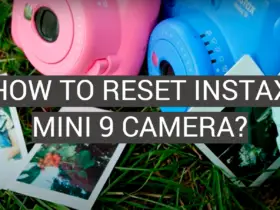
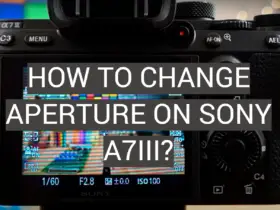



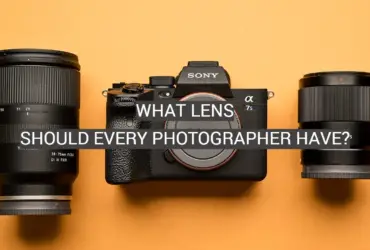
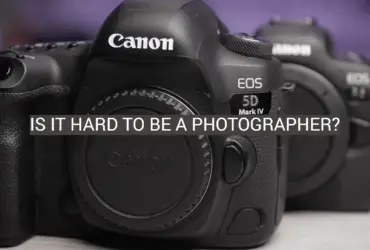
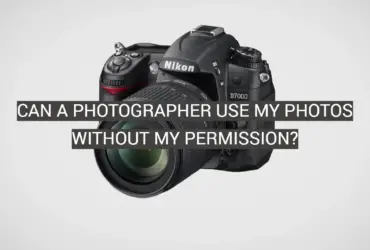



Leave a Reply